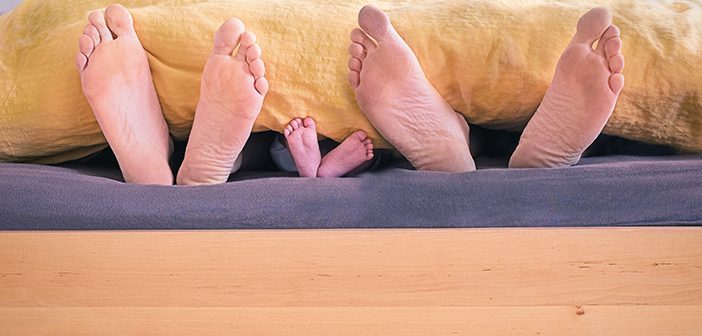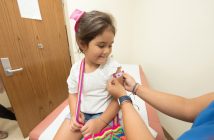Much is said about physical and mental health, but one thing that inextricably links the two, yet routinely seems low on our list of priorities, is sleep health. A lack of adequate sleep can affect everything from your balance and injury-risk to mood swings and memory loss. What’s more, between binge-watching television shows late at night and responding to WeChat messages before shutting our eyes, there is research to suggest that our modern society is not only sleeping less, but that the quality is degrading as well.
To help us understand exactly how much sleep we need and the hidden risks of inadequate sleep, we spoke with Dr. Lin Zhonghui, Director of Beijing United Family Hospital’s Sleep Medicine Center and Chair of their Ear, Nose, and Throat (ENT) department. Dr. Lin has been working as a sleep specialist for more than two decades and even spent several years training at Sydney University with Professor Colin Sullivan, inventor of the CPAP machine.

“There is evidence to show that modern people are sleeping much less and it seems the problem is getting worse”
What are some of the most harmful effects of not getting enough sleep? What are some of the most surprising effects that no one would suspect?
A good sleep helps not only good day time performance, but also to maintain immune function, learning ability, cardiovascular system health, and normal metabolism for fat and glucose.
Sleep is more important for kids whose development is so closely related to it.
Sleep deprivation is related to nearly all health issues. The most surprising fact is that it is an important risk factor of malignant tumors, Alzheimer’s disease, type II diabetes, obesity, cardiovascular disease, and a shorter life span.
In working with patients, what are some of the most persistent myths you hear surrounding sleep and health? What are some of the most common problems you encounter with your patients?
Persistent myths I hear among my sleep patients are:
“I do not need that much sleep.”
“I am feeling more tired than before, just because I am not that young anymore.”
“My lifelong mouth breathing is not bad, I got used to it.”
“All of us need a cup of coffee to get started in the morning.”
“Heavy snoring is not that bad, it affects my wife much more than myself.”
“A couple of glasses of wine helps me sleep.”
“Senior people do not need that much sleep anymore.”
The most common problems I encounter in my clinic are: (1) Snoring kids’ symptoms are so diversified and elusive, most of them seem like normal kids. However, only detailed consultation and careful evaluation of their upper airway could show their real problems, which are too often pretty serious. (2) Adults who are not satisfied with sleep quality are found out to be caused by a blocked nose, sleep, and general health. (3) Apnea is much more common a problem than expected, not only by laymen but also by too many physicians who never had sleep medicine training. Too often, I meet physicians who are completely unaware of their sleep apnea until it is confirmed with a sleep test.
What does adequate sleep look like as we get older? From childhood to adolescence/teenage years, and into adulthood, how does our need for sleep evolve? Do the number of recommended hours per night change as we get older?
Primary school kids need around nine to 11 hours of sleep, and middle school students need about nine hours of sleep. Then from high school age until senior groups of people, our sleep needs are roughly eight hours. Yes, senior people still need about eight hours, the only problem is that the sleep quality of senior people is much worse, so it is hard for senior people to have enough good sleep, especially good quality sleep. Good sleep, with both good quality and enough hours, is closely related to senior people’s health.
In our modern world, many of us, and particularly kids, may choose to watch TV on a laptop, tablet, or smartphone before bed. Often, this means laying down with the device propped up on the stomach. Are there any ramifications to watching TV before bed?
Exposure to light in the evening prevents melatonin secretion which kicks off sleep initiation. Watching TV, playing electronic games or surfing on the net makes the brain more bombarded and excited. Research shows reading a paper book at bedtime is less harmful to sleep than using electronic devices.
Is there any evidence, or studies to suggest that sleep patterns for society as a whole are getting worse?
Yes, there is evidence to show that modern people are sleeping much less and it seems the problem is getting worse. Lifestyle, globalization effects on circadian rhythm, digital entertainment streaming services, and devices contribute to a lack in both quality and length of sleep.
Can you share a first-hand example with us?
Snoring/mouth breathing kids are more likely to have bad sleep quality, learning problems, and development issues. If they are not well-treated during childhood, there is a potential risk to become apnea patients when they are grown-up because their upper airway development is affected by mouth breathing.
Six months ago, a 5-year-old boy, Archie*, was referred to me by his orthodontist. Archie went to see the orthodontist because his mother noticed he had an open bite. His mother was a little confused when she learned from the orthodontist that Archie’s open bite could be caused by his big adenoid and tonsils. I asked the mother if Archie was snoring, had restless sleep, attention issues, hyperactivity, mouth breathing, and frequent bedwetting. The mother said Archie did not have any of the above problems until two years ago, while he gradually started having these issues after his third birthday. Then I checked Archie’s upper airway with a flexible laryngoscope, which showed he does have a big adenoid and big tonsils, and his nose was blocked by the adenoid from behind, so he has to breathe through his mouth. With longterm mouth breathing and heavy breathing during sleep, his sleep quality was affected, and his bite, upper and lower jaw development was also affected.
After my explanation, Archie’s mother was pretty surprised to know all of his symptoms are related to his big adenoid and tonsils. Then we agreed to perform an adenoidectomy and tonsillectomy for Archie. Two weeks after the procedure, Archie came back for a follow-up. His mother told me Archie is a different boy already, no snoring, no mouth breathing, and much happier than before. I told the mother, with normal nose breathing Archie’s open bite is expected to get better, gradually, while he still may need orthodontic treatment afterward, because there was long term mouth breathing effects on his upper and lower jaw development already. Archie needs to see his orthodontist for further evaluation.
*name has been changed for privacy
KEEP READING: Putting Baby to Sleep: Routines, Cues, and Crutches
Photos: Unsplash
 This article appeared in the beijingkids 2020 May issue
This article appeared in the beijingkids 2020 May issue




